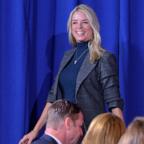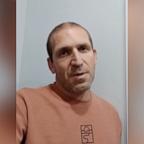Bank's loans to Trump were 'good credit decision,' says exec
Deutsche Bank's $378 million in loans to the Trump Organization was a "good credit decision," the bank's former risk management executive told the court at the end of more than a day of testimony.
"I think we did a reasonably thorough analysis of the information," former Deutsche Bank executive Nicholas Haigh testified under cross-examination by the defense.
An internal Deutsche Bank group evaluated Trump's financial information, personally visited Trump Organization offices to review bank and brokerage records, and conducted some appraisals of property explicitly used as collateral, according to Haigh.
Though the value that Deutsche Bank determined for the properties often differed by hundreds of millions of dollars compared to the Trump-provided value, the entities continued to have what internal bank documents described as a "long and satisfactory relationship."
"Using a Deutsche Bank-adjusted value for the assets, the net worth still exceeded $2.5 billion," Haigh said, referring to Trump's net worth as it related to a loan covenant.
When Trump decided to run for president and won the election, Deutsche Bank was supportive of the business relationship, though management was careful to monitor their particularly high-profile client, according to internal bank documents presented at trial.
"Note that the relationship continues to be monitored at the highest levels of senior management within the firm and any issues arising from the Guarantor's status as President of the United States are immediately addressed, taken to the appropriate Reputation Risk committee, and discussed with appropriate legal counsel," a credit report said.
When asked directly if the decision to work with Trump was a "good credit decision" by defense attorney Clifford Robert, Haigh responded, "I generally agree with that."
During redirect questioning, state attorney Kevin Wallace stopped short of directly asking Haigh if he would have still done business with Trump had he known about the inflated value of Trump's assets. But he asked Haigh whether Trump's financial information could have been incomplete.
"You have no way of knowing if there was information that wasn't provided to you?" Wallace asked.
"That is correct," Haigh said, marking the end of his questioning.




